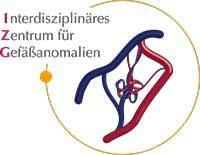Kidney Cancer (renal Cell Cancer) — Embolization or Chemoembolization: treatment in the Best Hospitals of Germany
Treatment prices are regulated by national law of the corresponding countries, but can also include additional hospital coefficients. In order to receive the individual cost calculation, please send us the request and medical records.

Department of Interventional Radiology
The Department of Interventional Radiology offers the full range of imaging examinations, as well as innovative image-guided minimally invasive techniques for the treatment of tumors, vascular diseases and internal pathologies (for example, CT, MRI, PET-CT, SPECT). The department's doctors have deep knowledge and colossal experience in the field of interventional radiological methods of treatment, which represent an excellent alternative to open surgical interventions. Despite the high level of technical equipment and the presence of advanced computerized systems, the focus is always on the person with his individual needs. Compliance with current clinical protocols and high professionalism of the department's specialists contribute to the successful clinical practice, as well as the reputability of the department among the best medical facilities of this kind in Germany.




Department of Interventional Radiology and Neuroradiology
The Department of Interventional Radiology and Neuroradiology offers a full range of advanced imaging diagnostics and minimally invasive treatments on both an inpatient and outpatient basis. The department has state-of-the-art medical equipment for imaging tests such as X-ray, computed tomography, magnetic resonance imaging, digital subtraction angiography, and mammography. The medical facility also performs many highly effective interventional therapeutic procedures under image guidance, which in many cases allow patients to avoid traumatic open surgery. For example, the department successfully performs local fibrinolysis, thrombectomy, percutaneous transluminal angioplasty, hemostasis, transarterial chemoembolization, uterine artery embolization, and other procedures. The department's neuroradiologists specialize in brain and spinal cord imaging and the treatment of central nervous system disorders. Interventional neuroradiology focuses on the treatment of carotid artery stenosis, brain aneurysms, arteriovenous malformations, dural fistulas, subdural hematomas, brain tumors, skull base and spinal tumors, and chronic back pain. The department's medical team has extensive clinical experience in their areas of expertise. The specialists are guided by the recommendations of the German Society for Interventional Radiology and Minimally Invasive Therapy (DeGIR) and the German Society for Neuroradiology (DGNR), which helps to achieve the best results.






Department of Adult and Pediatric Diagnostic, Interventional Radiology, Neuroradiology
The Department of Adult and Pediatric Diagnostic, Interventional Radiology, Neuroradiology is one of the best institutions of its kind in Germany and offers patients the full range of radiological studies and imaging-guided minimally invasive therapy. The department’s scope of tasks also includes imaging diagnostics in children of all age groups, detection and invasive treatment of cerebral vascular pathology (neuroradiology). Patient care is provided both on an inpatient and outpatient basis.






Most malignant kidney tumors are detected at a stage when the disease can be treated with surgery. Therefore, laparoscopic partial nephrectomy or radical nephrectomy (total kidney removal) with ureterectomy (removal of the ureter) are considered the main treatments for cancer of this organ. However, in some patients, cancer is detected at an unresectable stage. This form of the disease cannot be cured, but it can be controlled for a long time by combining systemic therapy with localized procedures. One of the best treatment options in this case is chemoembolization. This is a minimally invasive endovascular procedure that is used in German clinics. It shrinks the size of kidney tumors or stops their growth. The cost of embolization or chemoembolization for kidney cancer (renal cell cancer) is between 24,500 EUR and 41,200 EUR.
Content
- The principle of the treatment method
- When can chemoembolization be used?
- How is chemoembolization performed?
- How effective is the chemoembolization procedure?
- Where can I undergo treatment?
The principle of the treatment method
Chemoembolization is a combination of two treatment methods that work through two different mechanisms:
- Embolization is the closure of the arteries supplying the tumor in order to deprive it of blood supply
- Regional chemotherapy is the delivery of chemotherapy drugs to the arteries supplying the tumor
Any malignant tumor has a very intense blood supply. The neoplasm needs a lot of oxygen and nutrients for continuous growth. Tumors therefore release growth factors that activate angiogenesis (the formation of new blood vessels). The development of new microvessels can be seen even in places where only 100-300 cancer cells accumulate.
Since malignant tumors are abundantly supplied with blood, consuming a lot of oxygen and energy, they are sensitive to deterioration of the blood supply. Arterial embolization procedures can therefore quickly shrink the size of the neoplasm and sometimes even ensure the complete disappearance of the tumor.
Embolization for kidney cancer in Germany is rarely performed as a stand-alone treatment. It is sometimes performed before kidney removal surgery in order to reduce blood loss and the severity of postoperative symptoms such as pain and hematuria (blood in the urine). However, the procedure is more often used as part of chemoembolization and less often as part of radioembolization, that is, in combination with regional chemotherapy or radiation therapy.
Chemoembolization has become a common method of cancer treatment since the 1980s, when it was successfully used for metastatic and primary liver cancer. The procedure is now used for other tumors, including kidney cancer.
It is an endovascular and radiosurgical procedure that is performed in the Department of Interventional Radiology. When performing the treatment procedure, the doctor blocks the blood vessels supplying the tumor with emboli containing drugs. Most commonly, these are lipiodol oily solutions or drug-saturated microspheres.
Thus, chemoembolization for kidney cancer in Germany works simultaneously due to the following two mechanisms: it deprives the tumor of blood supply, triggering tissue necrosis (cell death), and also damages cancer cells for a long time with chemotherapy drugs that are released from emboli.
When can chemoembolization be used?
Chemoembolization for kidney cancer is mostly used in patients who cannot undergo surgery due to contraindications or in the advanced stages of the disease. This procedure does not cure the cancer completely, but it can shrink the size of the tumor, stop its growth for a long time, and increase the life expectancy of patients. It also creates conditions for further successful systemic treatment. In addition, by shrinking the tumor, symptoms disappear and the risk of complications is reduced.
Less commonly, chemoembolization is used before surgery to reduce blood loss and lower the risk of cancer recurrence. While the reduction of intraoperative blood loss due to embolization is an established fact, the effect of this procedure on the likelihood of tumor recurrence is only suspected but not yet proven.
How is chemoembolization performed?
Chemoembolization for kidney cancer is a minimally invasive endovascular procedure that does not require a long hospital stay or rehabilitation. It is performed from inside the blood vessels through an incision in the groin area.
Immediately before chemoembolization, the doctor checks which blood vessels supply the tumor with blood. To do this, the specialist performs X-ray scanning after injecting a contrast agent into the arteries. The target blood vessels are then occluded with emboli. These may be:
- Drug-saturated microspheres, which are tiny balls containing chemotherapy drugs
- Lipiodol oily solution, which is a less effective method that occludes the blood vessels temporarily and provides a shorter duration of regional chemotherapy exposure
In recent years, physicians in developed countries have been using drug-saturated microspheres more frequently. Some of them are produced in finished form and contain chemotherapy drugs, while others are saturated immediately before the chemoembolization procedure. In the second option, the doctor can choose the drugs, which is an advantage because different patients at the time of the procedure have already undergone chemotherapy with different drugs. Tumors may already have resistance to some drugs. As a rule, microspheres for kidney cancer treatment are saturated with doxorubicin and/or platinum-based drugs (cisplatin or oxaliplatin).
Microspheres vary in diameter. Doctors use them to block blood vessels of various sizes.
Superselective chemoembolization is usually performed, which involves blocking the arteries that supply tumors. Doctors also try to minimize the impact on other arteries in order not to disrupt the blood supply to the kidney and preserve the function of the organ.
At the same time, the kidney is a paired organ, so preserving function is desirable but not necessary. There are cases when several tumors or one large tumor are found in the kidney at once. Embolization can sometimes be performed before kidney removal, which makes attempts to preserve its parenchyma pointless. In such cases, total renal artery embolization may be performed. In addition to microspheres, another embolization agent, such as polyvinyl alcohol, may be used to increase the effectiveness of the procedure.
How effective is the chemoembolization procedure?
For inoperable kidney cancer, chemoembolization is a good treatment option because it increases survival and can be used in addition to systemic drug therapy, including targeted therapy and immunotherapy.
Studies have demonstrated the high effectiveness of chemoembolization for unresectable cancer. In the work of Yonghua Bi et al., published in 2022, the treatment results of 35 patients were described. In 94% of them, the procedure was effective. Half of them achieved a partial response (tumor shrinkage by more than a third), and another half achieved disease stabilization. The median survival after the procedure exceeded 2 years.
Where can I undergo treatment?
You can undergo your kidney cancer diagnostics and treatment at a German clinic. You are welcome to check prices and make an appointment for your treatment in Germany via the Booking Health service. You can find the best hospitals for kidney cancer treatment here.
When you make an appointment through Booking Health, the cost of cancer diagnostics and treatment will be lower than when you contact the hospital directly. This is due to the absence of additional fees for foreign patients. The Booking Health specialists will help you select a hospital, arrange your trip, and provide support during your stay in Germany.
Authors:
The article was edited by medical experts, board-certified doctors Dr. Nadezhda Ivanisova and Dr. Vadim Zhiliuk. For the treatment of the conditions referred to in the article, you must consult a doctor; the information in the article is not intended for self-medication!
Sources:

